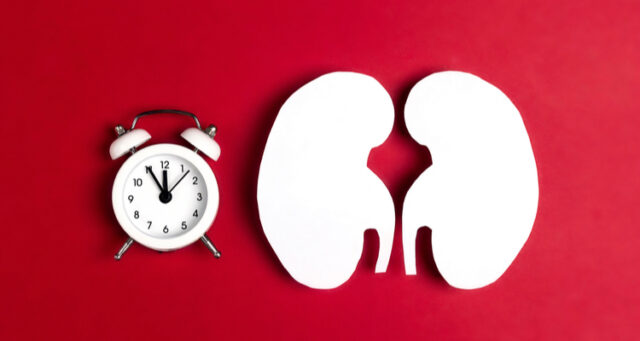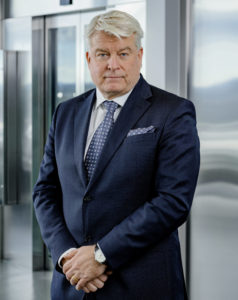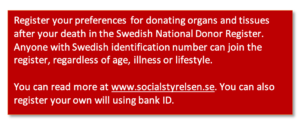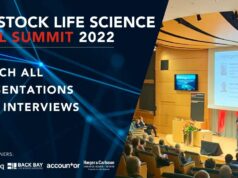
Idogen’s CEO on World Transplant Day and IDO T against organ rejection
Sunday 6th June is not only Sweden’s national day but also World Transplant Day, a day to draw attention to everyone who lives with transplanted organs or is waiting for an organ transplantation. The cell therapy company Idogen is also highlighting the importance of this day since they are active in the field. Idogen has a cell therapy under development, IDO T, with the intention of preventing organ rejection in kidney transplantation. In an interview with BioStock, Idogen’s CEO Anders Karlsson talks about the benefits of IDO T and why World Transplant Day is such an important day.
World Transplant Day takes place on 6 June every year and is a reminder that there are thousands of people around the world who are alive thanks to organ transplantation. Today, kidneys, liver, heart, lungs and pancreas are transplanted, but there are also transplants of other organs. Patients who are transplanted are offered a life with clearly improved quality of life. They go from being seriously ill and having debilitating symptoms to being able to live a fully normal life after the transplant with a restored quality of life.
The body’s normal reaction to an organ transplant is that the immune system acts to reject the foreign organ. To prevent this, patients are treated with immunosuppressive drugs that suppress the immune system’s ability to reject the organ, while unfortunately having unwanted side effects for the patient.
Lifelong immune inhibiting treatment
Patients with transplanted organs need take immunosuppressive drugs for the rest of their lives to reduce the risk of organ rejection. Unfortunately, the treatment, which is often a combination of several different drugs, also lowers the body’s natural immune system as a side effect, increasing the risk of severe infections and various forms of cancer.
According to Idogen’s CEO Anders Karlsson, a high level of protection against rejection is desirable, but, at the same time, keep the risk of serious side effects as low as possible. Furthermore, he explains that immunosuppressive drugs can have directly negative (nephro-toxic) effects on transplanted kidneys and its ability to function for a long time, and that this may be another reason to keep drug doses as low as possible.
IDO T – preventive treatment for organ rejection
In the IDO T project, Idogen develops a cell therapy with the hope of preventing organ rejection and reducing the need for lifelong immunosuppressive treatment. The purpose of IDO T is to ”educate” the immune systemin recognising the transplanted organ and thus avoid the body’s defence mechanism attacking the foreign organ.
The idea is that the patient should be treated preventively before carrying out the transplant in order to build up a tolerance. It is hoped that the patient then can then be treated with lower doses of immunosuppressive drugs or at best get by completely without the immunosuppressing treatment.
Kidney transplantation in focus
Treatments that create immune tolerance, such as IDO T and Idogen’s other projects, are called tolerogenic treatments. In the IDO T project, Idogen has chosen to initially target kidney transplants, the most common transplant. Globally, approximately 90 000 kidney transplants are carried out per year and the number is increasing every year.
In Sweden, between 400 – 500 kidneys are transplanted per year, i.e. more than one transplant per day. A third of kidney transplants are done with the help of a living donor, usually close relatives. It is initially this patient group that Idogen will target.

Idogen’s CEO on World Transplant Day and IDO T
BioStock got in touch with Anders Karlsson, Idogen’s CEO, to learn more about the company’s tolerogenic cell therapy for organ rejection and to hear his thoughts on World Transplant Day.
Why is it important that World Transplant Day and other initiatives in this area be given attention?
– Unfortunately, a large proportion of patients who could be treated with a transplanted organ do not get this opportunity. The causes are several, but the most common cause is a lack of available organs. The waiting list is long, for many patients up to several years, and about one patient per week dies while waiting for a life-saving transplant. Increased awareness in society of this problem and the value of donating organs would probably improve this situation.
How will kidney transplant patients benefit from your treatment IDO T?
– We are developing a treatment based on the transplanted patient’s own cells, a so-called autologous tolerogenic cell therapy, with the intention of creating tolerance for the foreign organ from a donor. The goal is to be able to reduce the doses of immunosuppressive treatment or perhaps even completely remove the powerful medicine that suppresses the unwanted attack of the immune system that can lead to the rejection of the foreign organ. The idea is to reduce the risk of unwanted side effects such as severe infections, cancer and harmful effect on the new transplanted kidney.
»We are developing a treatment based on the transplanted patient’s own cells«
Can you tell us a little more about how tolerance is created – that is, what the process looks like to”teach” the immune system to recognise and tolerate the transplanted organ so that it is not attacked?
– We use cells from the patient’s own blood that we treat with selected cells from the donor. The idea is to treat the patient prophylactically with this cell therapy before carrying out the transplant to ”prepare” the immune system for the transplant. The intention is to mitigate the immune system’s response to the foreign organ.
»The intention is to mitigate the immune system’s response to the foreign organ.«
– IDO T is initially developed for kidney transplants with related donors that donate one of the two functioning kidneys. You can then prepare the procedure well in advance of implementation and also choose an occasion that is optimal for both the donor and the recipient.
Are there any other companies developing treatments for organ rejection based on similar concepts to Idogen?
– There are some ongoing projects in the field of cell therapy and transplantation, but these options are not available for clinical use yet. We have a technology for which we have applied for patent. If approved, the company will receive a market exclusivity by 2040. We believe a lot in the technology that we are now developing and hope that the data generated will be able to show that our product can provide a great benefit to patients in organ transplantation.
You mentioned the lack of access to donated organs and the death of many people on the waiting list for a transplant before an organ has been offered. How can this problem be counteracted?
– I think World Transplant Day should be used to make an effort for organ donation. Discuss with friends and relatives and strike an extra blow to take a stand on organ donation today. It is very helpful that relatives know how to help a seriously ill person. Registering as a donor as the next step makes the process much easier for your loved ones if the accident occurs.
The content of BioStock’s news and analyses is independent but the work of BioStock is to a certain degree financed by life science companies. The above article concerns a company from which BioStock has received financing.


